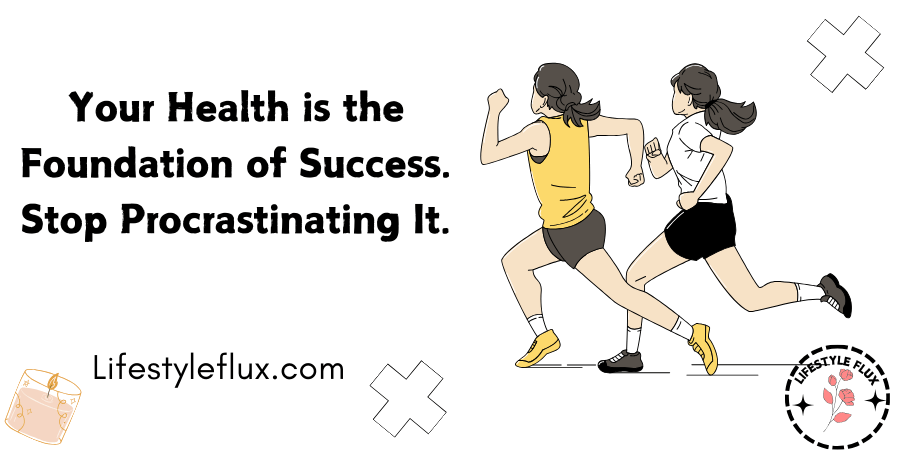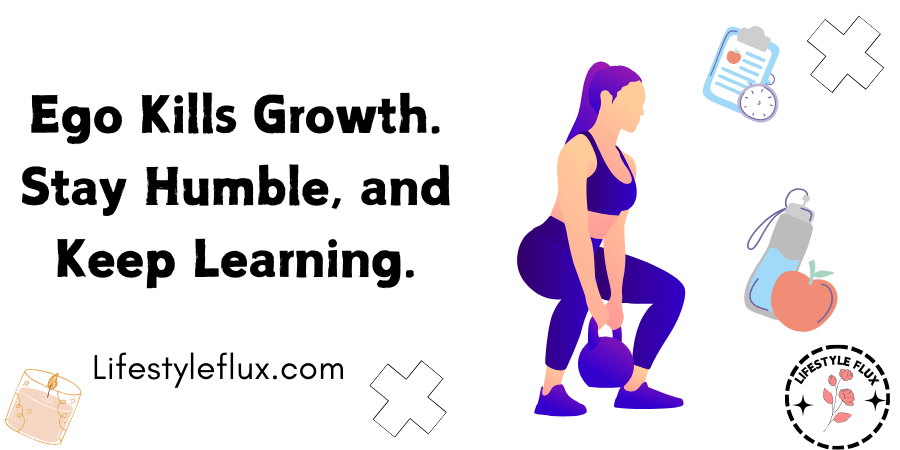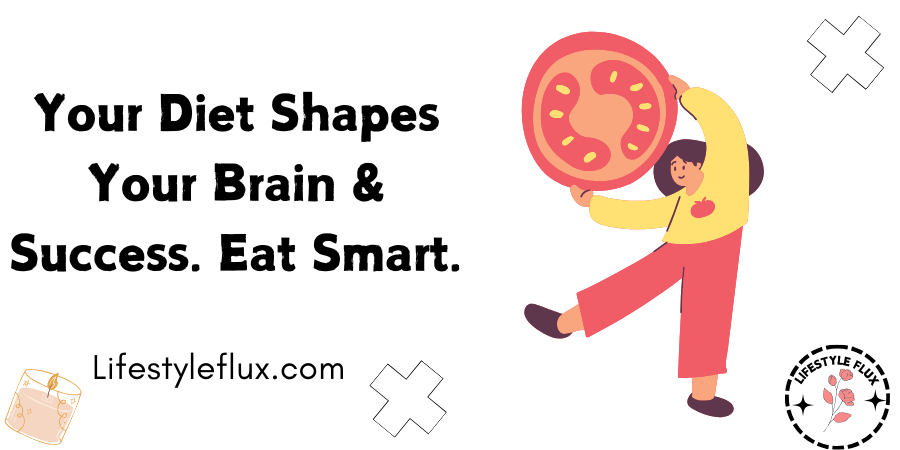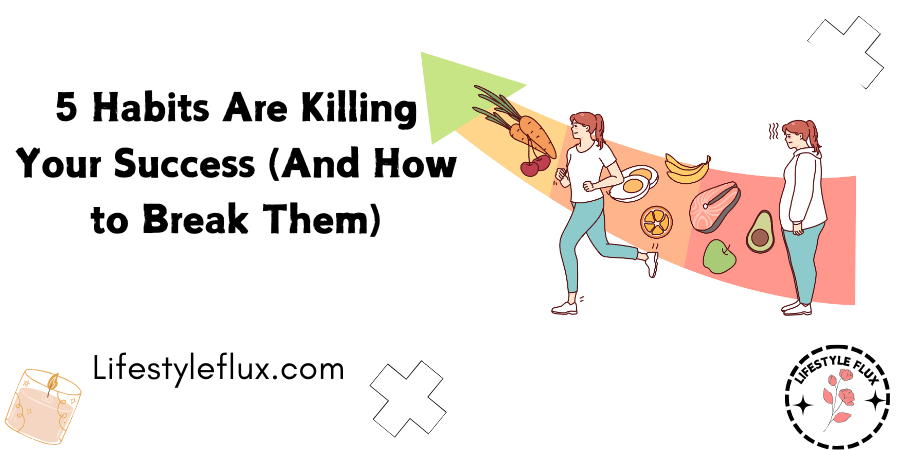Success often feels like an elusive destination, but what if the real roadblocks are habits we overlook daily?
In These 5 Habits Killing Your Success (And How to Break Them), we’ll uncover the sneaky behaviors that sabotage your progress and explore actionable strategies to overcome them.
From neglecting your health to seeking constant validation, these habits might be the hidden culprits holding you back. Let’s dive into how you can break free and unlock your full potential.
Table of Contents
1. Procrastinating Health
Procrastination is a nasty habit on its own. It’s unproductive, frustrating, and leaves you feeling anxious for no good reason. But there’s one particular kind of procrastination that really stands in the way of success. People procrastinate their health more than any project or PowerPoint. Maybe you put off going to the gym, or you just stop getting a full eight hours of sleep.
It’s easier than you think to ignore or forget about your personal health. For many people, maintaining a healthy body and mind doesn’t really feel like a goal.
Unless you’re trying to lose weight or change your diet, mental and physical health often fade into the background. Over time, you pay less and less attention to your healthy habits.
You might notice your clothes getting tighter, your body getting weaker, and your motivation starting to dwindle. Yet, you convince yourself that nothing is actually wrong.

One off day turns into an off week and that turns into an off month and then an off year. Suddenly, you wake up and realize that you haven’t been caring for yourself as you should have.
Now, you’re staring down a gruelling uphill battle with your own bad habits. But it doesn’t have to be that way. You can stop yourself from falling down that slippery slope.
The trick is to quit thinking about your health as a project that you need to finish or a race that you need to win. Your health is something you should work on every single day for the rest of your life.
No matter how much knowledge or potential you have, you need your physical and mental health to provide a solid foundation.
2. The Amateur Ego
Imagine you’re studying for a final exam, and you’re pretty sure you’ve got the information memorized. So you ask a friend to quiz you right away, you nail a few of the harder questions, and naturally, you’re feeling pretty confident until he throws you an easy one.
Instead of answering, you roll your eyes and say come on. Obviously, I know that one. But do you know what happens the next morning when that question shows up on the test?
You’ll get it wrong all because you couldn’t admit how much you didn’t know. This is a terrible habit that plagues newcomers in every field. Once you start learning a few skills, your ego takes over.
You start thinking you’re an expert, so you skip steps and cut corners because you’re convinced that all that beginner stuff is way too easy.
You never bother to practice or learn the fundamentals, so what happens to your product ultimately suffers.

You’ll be immediately outclassed by all the people who invested the right amount of time and effort. They’re the ones who struggle to practice and learn from their mistakes.
They slowly but surely develop their knowledge through careful trial and error. They’re the best because they didn’t take the fast track. They set their ego aside, and they chose the long scenic route, and it paid off.
To be successful, you need to accept how much you don’t know. 99% of the time, you don’t have it all figured out.
You don’t have all the answers, and well, let’s face it, you probably never will. So, work on defusing your ego, or you will be kept from realizing your dreams.
3. Detrimental Snacking
Think about the last time you went to the movies. If you’re like most people, you sit down in the theatre with a warm bucket of popcorn. Mmm, few things are more satisfying than shoving handfuls of that salty goodness into your mouth while enjoying a great movie.
But when it comes to success, this tasty treat includes two of the most harmful ingredients out there. The typical medium popcorn contains up to 1,500 milligrams of sodium and 60 grams of saturated fat.
If you didn’t know, your daily intake should be less than 2,000 milligrams of sodium and about 13 grams of saturated fat. Even a small bag of popcorn will take most people way over their daily limit.
Most salty snacks aren’t quite as terrible as movie theatre popcorn. But this is just one example of a bad habit that so many people struggle with in the world today.
Do you usually eat one piece of popcorn and then stop? How often are you satisfied with a single chip or a cracker? The more you snack on something, the more you crave it, and before you know it, you’ve accidentally gobbled down three days worth of salt and fat.
These two substances, sodium and saturated fats, are physically and mentally disastrous. Excess sodium dehydrates your body, increases blood pressure, and promotes diseases like osteoporosis and stomach cancer.
Neurologically, salt limits the amount of blood that flows into your brain, which means you’ll have a harder time focusing and storing new memories.
Too much salt will make you feel foggy and sluggish, which will hurt your chances of accomplishing much of anything. Saturated fats, on the other hand, are a bit of a double-edged sword.

If you keep your fat consumption under control, it’s a great source of energy. A healthy amount of fat boosts productivity and performance. However, most people don’t pay attention to how much they eat.
Excess saturated fat can raise both cholesterol and the risk of heart disease. And they aren’t doing your brain any favours, either. A study from Harvard University found that people who ate large amounts of butter and red meat scored lower on a variety of cognitive tests.
All of those extra saturated fats were actually causing inflammation of the arteries in the brain. Their problem-solving skill drastically decreased because their bad snacking habits were suffocating their brains.
So before you habitually inhale that next bite of popcorn, just think about how your snack is affecting your goals, motivation, and lifestyle. Enough of these poor dietary judgment calls can destroy your chances of being successful.
4. Fructose Overload
Alongside most tubs of popcorn, you’ll find a towering cup of ice-cold soda. The good news is that salt and sugar taste great together, but the bad news is that soda consumption is even more detrimental to your performance and lifelong success.
Nearly every popular brand of soda contains a significant amount of high fructose corn syrup. Unlike sugar, which is primarily glucose, high fructose corn syrup contains about 50% fructose.
Fructose is much harder for your body to utilize and digest. Normal sugar isn’t great for you, but at least excess glucose can fuel the trillions of cells in your body.
Fructose, on the other hand, doesn’t really do anything for you. Your body doesn’t know where or when to use it. Instead of turning fructose into fuel, most of it is converted into useless fats.
As you might have guessed, a diet containing too much high fructose corn syrup increases the risk of obesity, high blood pressure, and diabetes.
But that’s not why it hurts your chances of being successful. A study from 2017 found that drinking sweetened beverages could have long-term psychological effects.
Soda consumption has been correlated most notably with depression in both men and women. It isn’t just soda; researchers discovered similar results for other foods containing excessive amounts of high fructose corn syrup.
A study from 2015 found that consuming less soda, less candy, and fewer pastries reduced the likelihood of depression, especially in women. Even if you don’t experience depression, soda lowers your general energy levels after the initial sugar rush wears off, of course.
A 2009 study revealed that people exercised significantly less after switching to a high-sugar diet.
They’re less motivated, they’re less productive, and they care less about accomplishing their goals.
And if that wasn’t enough, a couple of recent studies claim that fructose reduces brain function and can impair memory and learning ability, which are both essential for success.
High fructose corn syrup isn’t the only way soda damages your brain. Dozens of sodas also contain a chemical called brominated vegetable oil or B vo.
In small amounts, B vo doesn’t really do anything. It just helps your soda keep its orange or cherry flavour, but if you drink sodas all the time, B vo can build up in your brain, and too much of the substance will cause memory loss and nerve dysfunction.
The cognitive effects are so significant that many companies have begun removing B vo from their products. In most European countries, B vo has been banned completely.
So the next time you sit back and relax, just pay attention to what you’re drinking after a long day’s work. It’s tempting to indulge yourself with a little sugar, or maybe you rely on sugar highs to wake you up in the morning.
Either way, the wrong drinks and the wrong snacks will keep you from performing when it matters most.
5. The Validation Expectation
Success isn’t designed to give you validation. Many people mistake these two very different things for one and the same.
You should never chase success just to earn the approval or admiration of the people around you. A good definition of success is unique to you as an individual.

It’s important to take other people’s wants and needs into account. Ultimately, success is something you define on your own. If you rely on external validation, you’ll find yourself going down the wrong path.
Your goals and motivation will feel shallow. You’ll crumble in the face of failure, and you’ll never make it to the top because you don’t have the intrinsic drive to get there.
So why doesn’t validation work? Validation is a purely short-term reward. It gives you a burst of self-worth that can temporarily improve your mood and self-esteem.
Validation obviously feels really good; so many people jump from one source of validation to the next. Don’t make this same mistake. If you want to be successful, then you need to concentrate on what you want, not what others expect.
Conclusion:
Success isn’t about perfection—it’s about progress.
By identifying and breaking these five destructive habits, you take the first step toward building a healthier, more focused, and intrinsically motivated version of yourself.
Your journey to success starts with small, consistent changes. Make today the day you choose better habits and a brighter future.
Sources:
https://pubmed.ncbi.nlm.nih.gov/28751637
https://pubmed.ncbi.nlm.nih.gov/26109579
https://pubmed.ncbi.nlm.nih.gov/25242636
https://pmc.ncbi.nlm.nih.gov/articles/PMC4429636
https://pmc.ncbi.nlm.nih.gov/articles/PMC2768570
https://www.healthline.com/nutrition/too-much-sugar#section6
https://www.healthline.com/nutrition/worst-foods-for-your-brain#section1
https://www.healthline.com/nutrition/why-high-fructose-corn-syrup-is-bad
https://archive.nytimes.com/well.blogs.nytimes.com/2009/11/19/popcorn
https://www.health.harvard.edu/heart-health/fat-thats-bad-for-the-heart-brain
https://www.health.harvard.edu/staying-healthy/the-truth-about-fats-bad-and-good

Founder and CEO of Lifestyleflux.com, I bring years of expertise in self-improvement, wellness, and personal development to help you lead a happier, more balanced life. Through practical insights, eBooks, and consultations, I share actionable strategies rooted in experience and a passion for empowering others to unlock their full potential.

